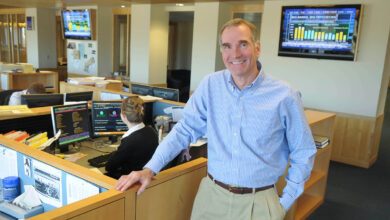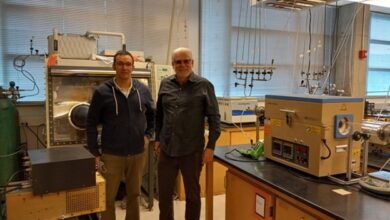Climate Change Calculus: HNWIs and Sustainable Impact Investing

Climate change is inescapable even for high-net-worth individuals (HNWIs). Its effects are forcing both short- and long-term decisions on HNWIs and their family offices. In the short term, the phenomenon is changing the calculus of where HNWIs choose to live, travel, and do business. In the long term, it is making them question what the world will look like for their children, grandchildren, and society as a whole.
Socially responsible and sustainable impact investing give HNWIs tools to protect their short- and long-term interests — and to potentially reap financial rewards along the way.

How Climate Change Is Impacting HNWIs
Florida and California are two states long favored by HNWIs. But climate change may be changing that. Under perennial storm and hurricane threat, Florida is facing an exodus of insurance companies. Farmers Insurance, Bankers Insurance, and AIG subsidiary Lexington Insurance, among others, no longer offer home insurance in the state.
California suffers from a similar dilemma. After devastating wildfire seasons in the late 2010s and early 2020s, the state has recently endured atmospheric rivers and megastorms. Hurricane Hilary brought a year’s worth of rain in a single day to some parts of the state and led to damages in the $7-billion to $9-billion range. Stung by repeated losses, insurers are pushing premiums ever higher or exiting the state altogether.
HNWIs may be able to take higher premiums in stride, but wholesale loss of coverage is another issue entirely. Will they stay in these states and risk substantial financial losses or relocate altogether? Leaving may solve the immediate problem, but the same existential question remains: What kind of world are they leaving for their heirs?
This is where socially responsible investing can help bridge the gap between doing well and doing good.
Sustainable Impact Investing: More Than Do-Gooderism
Socially responsible and sustainable impact investing are not just forms of money-losing altruism. HNWIs and family offices — like all investors — expect to earn financial returns on their investments. Sustainable companies may have motivations beyond the bottom line, but they have to have a business model with a sustainable bottom line if they are to appeal to investors over the long term.
The growing influence of such investment strategies demonstrates their viability. They have achieved some important milestones, including:

1. Buy-In from Global Actors
Worldwide, socially responsible investing is accelerating. Saudi Arabia’s sovereign wealth fund, the Public Investing Fund (PIF), has announced its goal of achieving net zero emissions by 2050. Governments are getting behind impact investing.
2. More Capital and Customers
Environmental, social, and governance (ESG) reporting is growing ever more important to investors’ buy-and sell decisions. Nearly half (48%) have expressed an interest in sustainable investing, and 68% say they would be willing to pay more for sustainable products.
From a personal perspective, investing in companies that mitigate climate change can not only safeguard the tangible assets that HNWIs enjoy but also help preserve those assets for their heirs. Climate change might not be solved in their lifetime — or in the next several generations’ — but more and more consumers, investors, lenders, and governments believe that concentrating their resources to counteract climate change can yield both financial and practical benefits.
There is no backup planet to build on or invest in, and HNWIs are beginning to align their capital allocations with that sentiment.
If you liked this post, don’t forget to subscribe to Enterprising Investor and the CFA Institute Research and Policy Center.
All posts are the opinion of the author. As such, they should not be construed as investment advice, nor do the opinions expressed necessarily reflect the views of CFA Institute or the author’s employer.
Image credit: ©Getty Images / Kofi Oliver
Professional Learning for CFA Institute Members
CFA Institute members are empowered to self-determine and self-report professional learning (PL) credits earned, including content on Enterprising Investor. Members can record credits easily using their online PL tracker.




